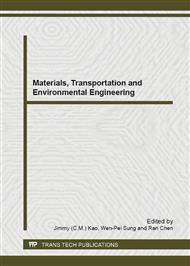p.836
p.840
p.844
p.848
p.857
p.861
p.868
p.872
p.878
Thermal Management System Analysis of Underwater Vehicle Fuel Cell Propulsion Unit
Abstract:
A lumped parameter model is developed to study thermal management system performance of underwater vehicle equipping large power proton exchange membrane fuel cell propulsion unit. Fuel cell voltage current characteristic and heat release characteristic are represented by models which take effect of cooling water temperature into considered. Fuel cell stack performance models are validated against experimental data. Cooperated with experimental based models of water pump and heat exchanger, thermal management system performance is analyzed while fuel cell stack fresh cooling water outlet temperature is set to be at a certain value. The results show that inlet seawater temperature variation has little effect on opening of regulating valve, but engine power output variation results in notably regulating valve opening fluctuation. Modeling results would be employed in design of a underwater vehicle 300kW fuel cell engine system..
Info:
Periodical:
Pages:
857-860
Citation:
Online since:
September 2013
Authors:
Price:
Сopyright:
© 2013 Trans Tech Publications Ltd. All Rights Reserved
Share:
Citation:


